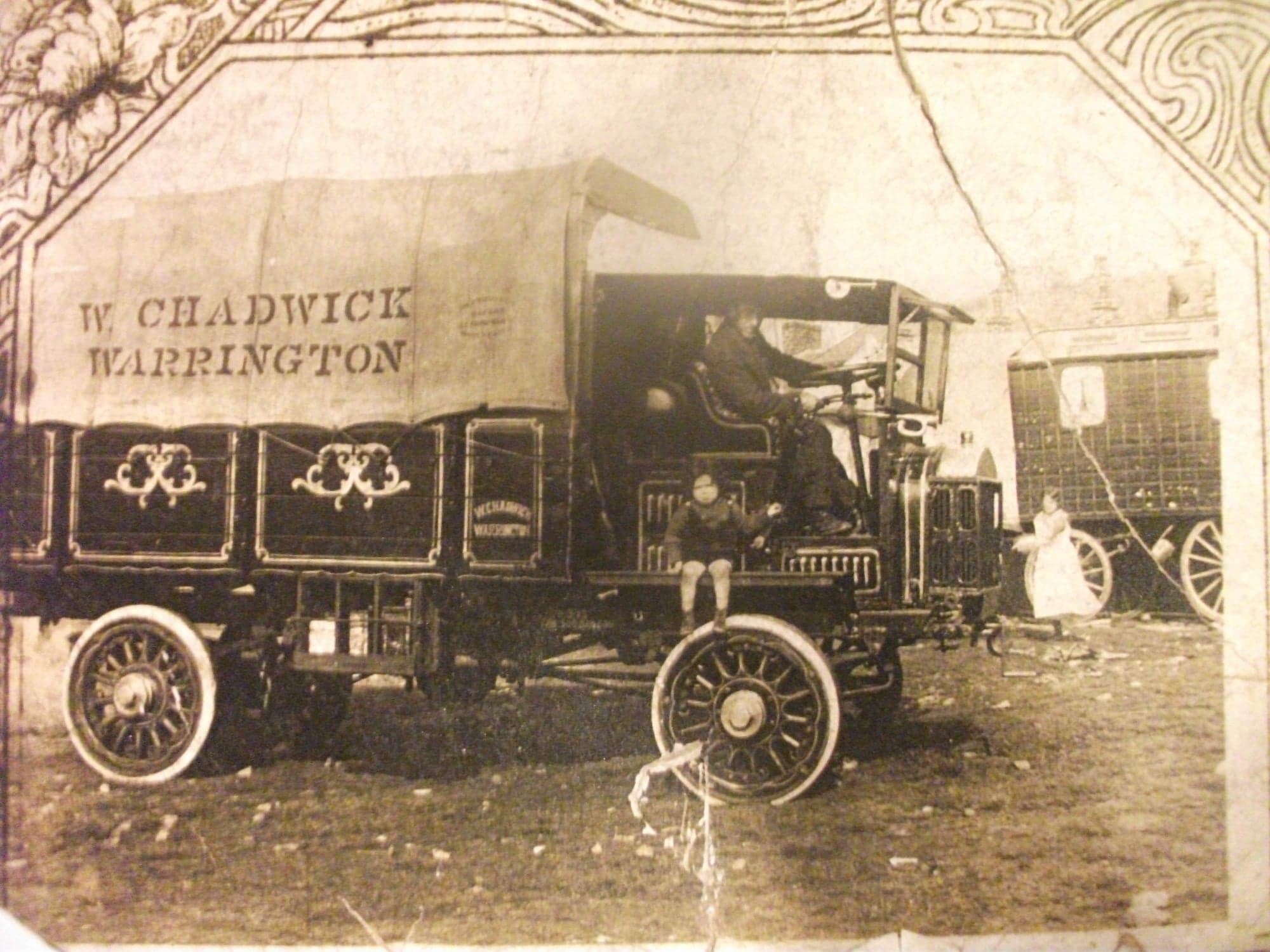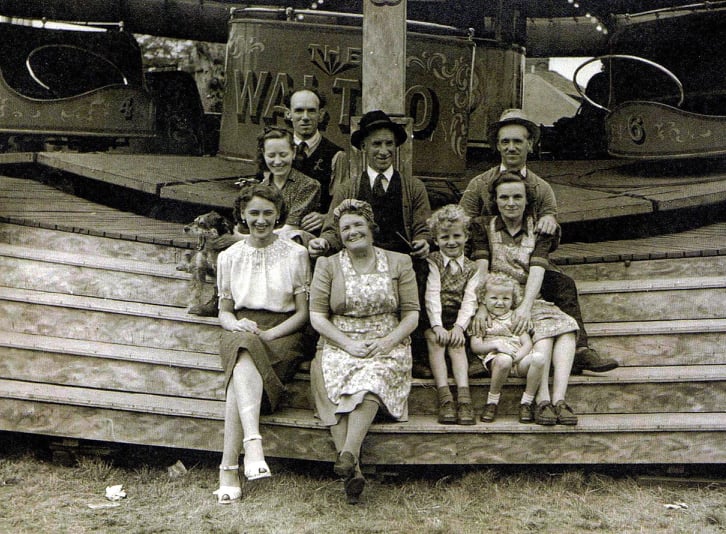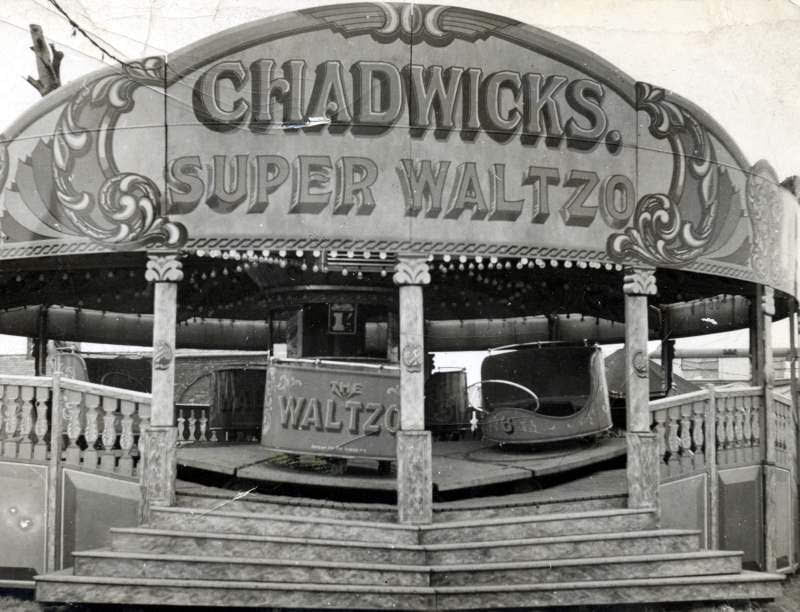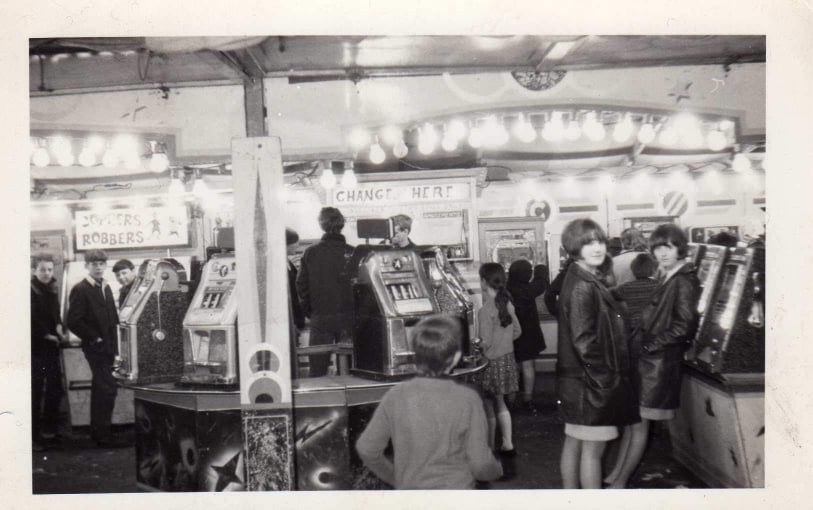This student is helping to shine a light, and protect the mental health, of one of the UK’s most ‘hidden’ ethnicities - a group of people known as ‘Showmen’.
The term ‘Showmen’ describes anyone who makes their livelihood from funfairs and fairgrounds.
It’s a close-knit and often-misunderstood community, estimated to include up to 25,000 people, with the funfair baton often passed down through many generations of the same family.
In April this year ‘Showmen’ was officially recognised as an ethnicity in the 2021 national census for the very first time. But despite that recognition, the community faces real difficulties that often go unnoticed.
Sheldon Chadwick is a Liverpool Hope University graduate who hails from a Warrington-based Showmen family.

He says Showmen not only face prejudice and discrimination, but there are also mental health issues that often go unaddressed - hidden behind the bright lights and happy shrieks of those exciting fairground nights.
Sheldon has set up a new charity - The Showmen’s Mental Health Awareness Charity - and says ‘our aim is to break the stigma surrounding mental health within the community and offer support, education and build awareness for all ages’
He adds: “The fairground and its people are wholly intertwined. Yet these people are often hidden by the flashing lights, loud music and excitement of the rides they represent.
“As a community, we’re often mistaken for people from other travelling backgrounds. While taking nothing away from those groups, we have our own rich cultural history that needs to be recognised.
“And with the charity, we want to give a voice and services to a group of people who often go unheard.”
Sheldon says that while the term ‘Showmen’ sounds gendered, it’s a colloquial expression for all people within the fairground industry, male or female, and who are often tied to the trade through family history or industry.

The 28-year-old says that while not all Showmen travel, many are effectively ‘seasonal nomads’ who move up and down the country in order to deliver an entertainment service. It can be a lucrative business, too, if, as Sheldon points out, ‘the weather is right’.
But despite the joy they bring to many, prejudice can haunt Showmen families.
Sheldon, who lives in south Liverpool explains: “Like many people who are not part of mainstream society, we suffer from this fear of the ‘other’ and from a fear of the unknown. It’s something you often see described in literature - this bizarre interplay between romanticism and the fear of the fairground.
“The main prejudice we suffer is mistaken identity. Secondly, it’s simply a critical attitude towards the way we live. The fairground and its community give the towns, people and places a sense of belonging simply by us being there. We’re talking about centuries of history and tradition, and there is still a lot of support for Showmen. We love the towns and villages we visit. Yet, in some instances, we’re still not fully accepted.
“For me, it’s now a case of breaking down the barriers that exist, showing that we’re just people - this is how we live, and this is the business choice we’ve made. You don’t have to be afraid.”
All of this potential for discrimination can feed into negative mental health and wellbeing issues.
Sheldon - who studied Drama & Theatre at Hope, specialising in the fairground as a site of nostalgia, before going on to study for a master’s looking at social media and alienation - explains: “The problem when it comes to mental health is twofold, really.
“Because the community is so small, we’re very private people. And as part of this one big family, if someone is suffering, news can travel quickly - which is not necessarily a good thing.
“If one person in the group is struggling, it can affect relationships as well as businesses. There’s a sense of letting people down. And so, there’s a real reluctance to speak about mental health issues - even though we’re telling people that it’s okay not to be okay.
“There’s also the public expectation for us to be upbeat and to be put in a show, which can often be unhelpful.”
Sheldon says all Showmen have a base out of which they operate, and a home address, which means children don’t need to keep changing schools. It’s the summer months in which Showmen are nomadic.
There are also travelling teachers who accompany Showmen to help children with their education, while families can also utilise online classes, too.
While Sheldon says his 'mam and dad' always gave him the choice whether or not to adopt the ‘Chadwick’s Family Fun Fairs ifestyle, he represents the sixth generation of Showmen in his family. His grandfather, and his grandfather’s grandfather, were Showmen.

(Sheldon's grandfather, Walter Chadwick 3rd, pictured as young boy, front and centre, with blonde curly hair, and great-grandfather Walter Chadwick 2nd top right)
And Sheldon says that right now, as we emerge from a global pandemic, it’s a pivotal time in the history of Showmen.
He says: “We’ve been placed in this sedentary status for the very first time. Even during the World Wars, we continued to operate. We had the famous black-out fairs during WWII, which took place under black canopies and tents, to keep the entertainment alive.
“And as we pause for breath for the first time in centuries, it’s a good moment to take stock and to promote positive mental health so we can help people in the future.”

The charity itself will offer a crisis management fund for individuals who are suffering with their mental health and need the help of medical professionals.
It also aims to provide education through lectures, programmes, special events, and a specific Showmen’s Mental Health guidebook.
Meanwhile Sheldon will embark on a PhD at Liverpool John Moores University which will focus on the ethnographic study of Showmen, in order to define what the term really means, while incorporating the voices of Showmen through testimonials and interviews. He also hopes to build the first statistics for Showmen’s mental health.
The charity has also been backed by the Showmen’s Guild of Great Britain and the Association of Independent Showmen, the two largest governing bodies.




